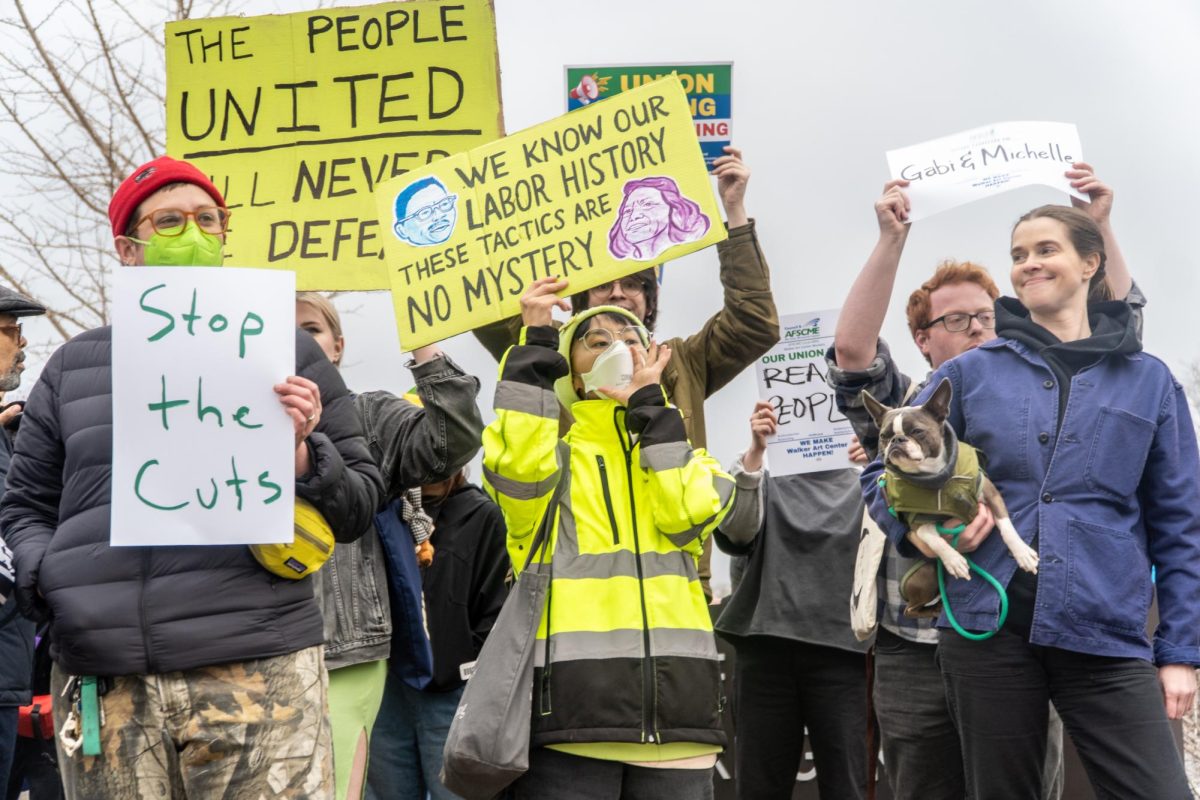With the continued popularity of television shows such as “Will & Grace” and “Queer Eye for the Straight Guy,” the homosexual image as it relates to the mass media is in the midst of a tug of war. Should gays and lesbians be content with these long-overdue, non-threatening portrayals of homosexuality or should they be angered by the cardboard stereotypes these shows make fresh and witty for the mainstream audience to consume?
The 14th Annual LGBT Film Festival is a celebration of movies made for and by the worldwide gay, lesbian, bisexual and transgender community. And it’s a valued outpost for filmgoers curious to see what homosexual images look like when not being co-opted by corporate giants whose only goal is to sell entertainment – no matter who is being stepped on.
“I should be really happy that a show like ‘Will & Grace’ is so successful, but I feel like the characters are really flat. It’s like a gay minstrel show in a way,” said Dean Otto, the festival’s curator. “And Jack is a walking stereotype of what America thinks gay men are.”
Gays and lesbians, like Asians and blacks, have watched the dominant media distort and stereotype their lifestyles for years – with little positive representation in sight. But with the popularity of “Will & Grace” and “Queer Eye” making homosexuality more visible to the masses, some might argue that gays and lesbians should celebrate this mild advancement. But is it really enough – should the LGBT community rejoice now that it has a hint of visibility in the pop-culture machine – even if it comes at the price of one-trick stereotyping?
“I think we can demand deeper characters,” Otto said. “On ‘Will & Grace,’ Grace is allowed to be married and to be in a relationship, but Will is not really allowed to kiss anybody or have a deeper relationship. He’s really nonsexual. He’s not allowed to have a relationship because that’s too uncomfortable for mainstream television.”
The films in the LGBT festival work to break the oppressive shackles and rampant stereotyping by offering complicated, multifaceted portrayals of nonheterosexual lifestyles. Take the title character in “Madame Sata.” He is a powerful transgender character fighting for political freedom, but he is also a thief and a liar. Otto said the point of the LGBT festival is not to solely promote positive images of gays and lesbians; rather it is simply to provide complex images.
Furthermore, the festival not only offers more fully realized portrayals of homosexuality, but it is also interested in ethnic diversity – another aspect of American society Hollywood often trivializes.
The lead character in “Madame Sata” is transgender, but he is also black and lives in Brazil. “The Path of Love” is a sort of Arab coming-out story. And “Terminal Bar” is a documentary about a black drag bar in New York.
“You can’t just divorce race and class when talking about the LGBT community,” Otto said. More than half the films he picked for this year’s festival come from other countries.
Of course, while the festival might be brimming with counter-cultural cinematic temperament, it is not devoid of pop connections.
“There are some films in the festival that are very close to the mainstream,” Otto said, “like ‘Gasoline,’ which is the ‘Thelma and Louise’ that lesbians really wanted to have.”
“Gasoline,” much like the Geena Davis/Susan Sarandon movie, is about two women on the run for committing murder. The main difference, though, is the two women are lovers.
So, while a show as daftly mainstream as “Will & Grace” probably will not be changing its sexual politics anytime soon, there is hope
on the film front. There has been a resurgence in queer cinema, Otto said. The early-1990s boom in queer filmmaking sputtered out when its primary outlet, the Sundance Film
Festival, started mainstreaming in the late 1990s. But the proliferation of LGBT festivals, such as this one, has led to a greater demand for queer films. And while the demand is mostly isolated to the LGBT festival circuit, every now and then a queer film will break through. “The Event” is the latest example. The film, about the assisted suicide of a gay man with HIV, opens at the Lagoon Cinema Nov. 21, but festivalgoers can get a first look 7:30 p.m. Saturday.
“We can’t wait around for Hollywood to get it right or to make the films for us, because if we do we’re going to end up with ‘In and Out’ or ‘The Birdcage,’ ” Otto said. “You throw us a nugget and we’ll take it – we’ll take it far – but we need a little more.”







